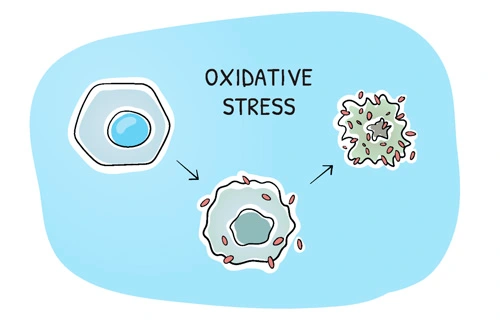Empath genetics

If you tested your DNA with a personal genomics service like 23andMe, AncestryDNA, FamilyTreeDNA, MyHeritage or another testing company, you can learn more about your risk factors for hundreds of diseases. By clicking the button above ⬆️, you can upload your raw DNA data file and receive a personalized 250-page health report with research links that is the most comprehensive.
According to the researchers, genetics play a role in our ability to comprehend and react appropriately to others' emotions. This skill is essential for social interactions, but it appears that women are generally better at discerning emotions than men. The study even identified a particular genetic variant linked only with this aptitude in females. Furthermore, higher empathy scores were associated with increased risk of anorexia and greater educational achievement coupled with openness towards novel experiences as well.
The study contributes to continued research on the linkage between autism and empathy, particularly regarding cognitive empathy or the capacity to deduce others' emotions.
The chromosome 3 gene LRRN1, which has high activity in the striatum region of the brain, is closely linked to empathy in women. Although there are indications from prior research that this part of the brain may be involved with empathic responses and cognitive processing, further investigation will be required for a more complete comprehension.
Warrier collaborated with Professor Simon Baron-Cohen, who directs the Autism Research Centre at the University, on this study. Furthermore, Professor Thomas Bourgeron from both the University Paris Diderot and Institut Pasteur was also involved in this research.
Follow the link of the selected polymorphism to read a brief description of how the selected polymorphism affects Oxytocin and empathy and see a list of existing studies.
SNP polymorphisms related to the topic Oxytocin and empathy:
| rs2268491 | Oxytocin receptor gene predicts brain activity during an emotion recognition task in autism. |
| rs2254298 | Oxytocin receptor gene polymorphism interacts with familial risk of psychopathology to predict symptoms of depression and anxiety. |
| rs6265 | Increased risk of ADHD or depression. Slightly faster decline in mental abilities in patients with Alzheimer's disease. The presence of this BDNF polymorphism is associated with differences in brain motor system functioning, altered short-term plasticity, and greater error in short-term motor learning. |
| rs53576 | Genetic variability in the oxytocin receptor has been linked to empathy and stress response in humans. Studies have shown that people without a break in the gene are more empathic, feel less lonely, use more sensitive parenting techniques and are less likely to have autism. The gene also correlates significantly with parenting, with people without a break in the gene being associated with a significantly more sensitive parenting style than heterozygote and homozygote carriers. |
| rs3751582 | GABRB3 a candidate gene for autism spectrum disorders. |
| rs918316 | |
| rs925946 | |
| rs237899 | |
| rs8192466 | |
| rs2268492 | |
| rs3212335 | |
| rs8043440 | |
| rs981347 | |
| rs4906679 | |
About The Author
Li DaliLi Dali, a National Foundation for Outstanding Youth Fund recipient, is a researcher at the School of Life Sciences in East China Normal University. He earned his PhD in genetics from Hunan Normal University in 2007 and conducted collaborative research at Texas A&M University during his doctoral studies. Li Dali and his team have optimized and innovated gene editing technology, leading to the establishment of a world-class system for constructing gene editing disease models.


